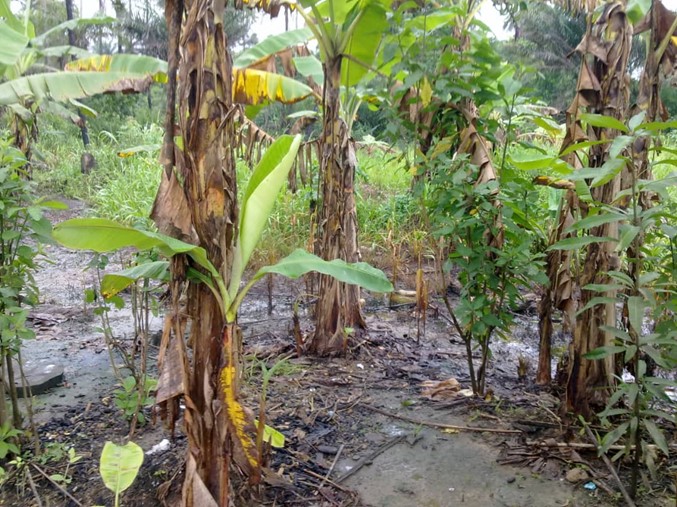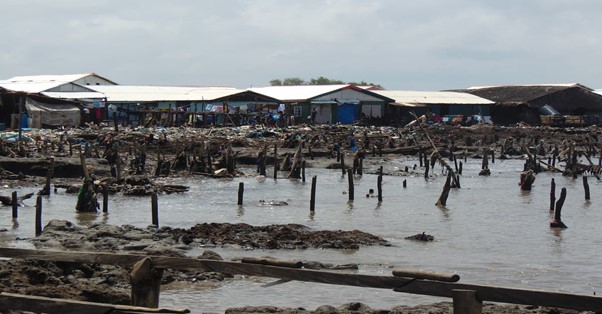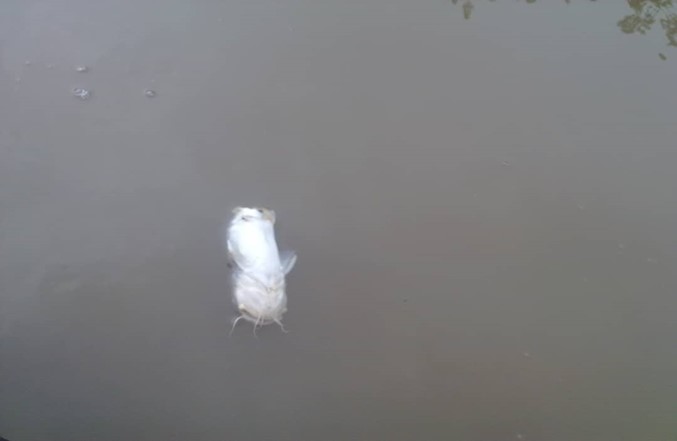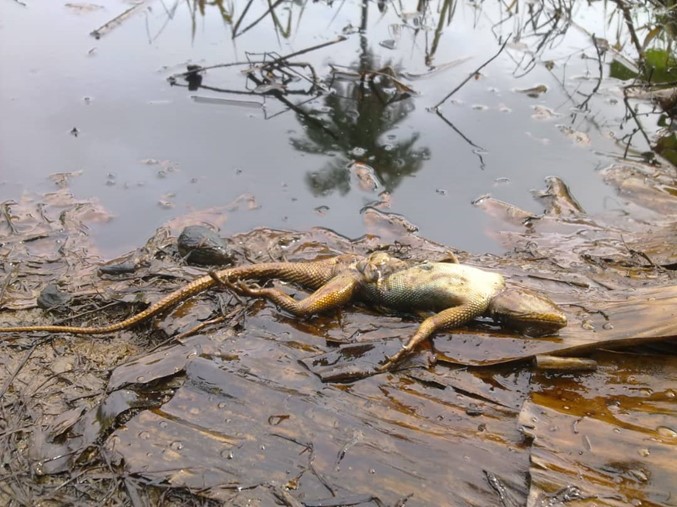6 EFFECTS OF OIL EXPLORATION ON THE ENVIRONMENT IN THE NIGER DELTA OF NIGERIA
There are about five stages of activities that are carried out before petroleum products gets to the consumers. These are oil prospecting and exploration, oil production, transportation of the oil to the refinery or processing plant, petroleum refining and transport and distribution of the petroleum products. In oil prospecting and exploration, geologists and geoscientist do seismic surveys where a lot of data about the sub-surface (onshore or land) and offshore is generated and interpreted for the presence of deposit of crude oil or gas or both. An exploration well is drilled to confirm the presence of crude oil or gas in a particular surveyed area. The series of activities during exploration are:
- the creation of a database
- the analysis of available data
- the programming of mapping and geological and photogeological surveys
- seismic surveys and interpretation of seismic data
- the choice of well locations, drilling and
- the analysis of results and the decision as to whether to proceed with the application for a lease or to release the area after fulfilling obligations.
The next phase is field appraisal where other wells are drilled to collect more data from the reservoir. The development stage takes place after successfully completing the appraisal period and before the beginning of the field production and includes the design of surface production facilities to separate the oil, water and gas. Oil exploration started in early 1950s in the Niger Delta region of Nigeria. A commercial quantity of crude oil was struck on June 12, 1956 in Oloibiri, a village in the present day Bayelsa state. Nigeria exported the first cargo of crude oil in 1958 when oil production started. The economy was driven by the agricultural sector until the oil boom of the 1970s when crude oil took over. That is why the proliferation of oil wells in the Niger Delta and the activities of the oil companies has rendered the economy and livelihood of the inhabitants useless. The continual reliance on oil has bred civil instability, corruption, environmental degradation and economic exploitation by the government and International Oil Companies (IOCs).
Each of the activities or operations in oil exploration affects the environment (air, land, and water). The effects of oil exploration are enumerated as follows:
- destruction of flora and farmlands;
During prospecting, deforestation takes place because a lot of trees are cut down. Consequently, the soil surface is exposed and causes the soil nutrients to diminish. The result of the diminishing soil nutrients is reduction in poor harvest or reduction in agricultural activities. The poor harvest will in turn cause hunger which is not in sync with United Nations’s Sustainable Development Goals (SDG) number 1. The construction of roads, facilities and drilling sites requires the use of heavy equipment and can destroy flora and farmlands and the damage is often irreversible.

2. destruction of human settlement;
Oil exploration activities in the oil producing areas of Nigeria has caused coastal recession. During exploration and drilling the gas that is flared has contributed to global warming which has made ice caps to melt thereby causing flooding in coastal regions around the world. In Nigeria, this has led to the displacement of some of the settlements from their original locations. An example is Awoye in Ondo state which is now about 2 km into the ocean because of serious coastal erosion and land submergence. Previous settlements are now fishing grounds.

3. noise pollution and vibration from seismic shooting;
The seismic shooting causes noise pollution and vibration to humans, terrestrial animals, vegetation, and aquatic animals. Kusku and coworkers have compiled sound pressure levels (SPLs) of human-generated acoustic noise exposures and their effects on marine animals and fish. Some of the effects include induced alarm reflex of Rockfish caused by air gun sound; shift of hearing threshold of Bottlenose Dolphin from ship and boat noise; and damage of hearing sensory epithelia of the Pink Snapper from seismic air gun noise. Seismic shooting also causes destabilization of sedimentary materials. These materials cause increase in turbidity, blockage of filter feeding apparatuses in benthic (bottom-dwelling) fauna, and reduction of plant photosynthetic activity due to reduced light penetration. The seismic shooting can also cause some of the fishes to die. The effect on humans may also include hearing loss, inability to sleep at night and speaking in high tones and pitch. The noisy and dirty environment can also turn away visitors from the communities that depend on tourism for their livelihoods.


4. dislocation of economic activity;
Oil exploration in the Niger Delta of Nigeria has caused increase in dislocation of farmers and fishermen who depend on farming and selling of fish for their livelihood, respectively. The land is severely degraded with a consequent decrease in agricultural profitability. The farmers would have no choice than to move to a different area to look for an arable and fertile land to farm or look for another means of livelihood leading to abandonment of their cultural heritage. Most fishermen live in camps, and when the chance of catching enough fish to sustain their livelihood is dwindled, they would likely move to another area to practice their trade.
5. community crises on the social environment because of compensations.
Oil exploration has also caused inter/intra communal crisis in oil producing areas of the Niger Delta. Consequently, some of the people who are not on the side of the IOCs have fled their communities to urban areas for fear of being killed. Oil exploration has also created crises among some of oil-bearing communities because of compensations. Examples include the disagreement of ownership of land between Ogume and Emu Ebendo, Umuseti and Umusadege, Benekuku and Umusadege, and the most recent one within Iberede community, all in Delta State. Oil exploration has also led to family disintegration because most members of the family feel cheated.
6. Offshore drilling oil pollution and chemical disposal affects the marine environment
Crude oil pollution caused by drilling in offshore wells greatly harms the marine ecosystem. It affects the fishes and marine animals. A recent marine oil pollution episode is that of OML 29 Well 1Platform in Nembe, Bayelsa State which occurred on November 5, 2021. The incident affected dozens of nearby fishing settlements along the Nembe coastline and the Santa Barbara River which meanders through the Niger Delta before emptying into the Atlantic Ocean. This incident, was however, attributed to a third party interference or vandalism. Apart from the oil spills from drilling operations, there is the possibility of drilling mud and other chemicals being released to the marine environment. These discharges also affect the fishes and marine animals.
The endowment of the Niger Delta with crude oil has become a curse, rather than a blessing. The key stakeholders in the Nigeria Oil and Gas industry: Federal Government, the IOCs and indigenous oil and gas companies and the host communities should synergize to arrest the degradation of the ecosystem. All parties should be sincere in dealing with each other. Adequate compensation should be paid to host communities whose ecosystem have been degraded. The 13 percent derivation fund which is allocated to oil-producing communities by the Federal Government through the state governments as enshrined in section 162, sub-section 2 of the Nigerian constitution should be used judiciously to develop the host communities. The activities of the oil companies should be checked closely to ensure they comply with all extant laws governing their operations. On the part of the host communities, they should work closely with oil companies to stop vandalism of oil facilities. In addition, adequate Environmental Impact Assessments (EIAs) should be carried out before establishing any exploration and drilling operations in the Niger Delta to forestall further degradation of the environment. Finally, due to the issue of global warming caused by fossil fuels exploitation, the call to transit to more environmentally friendly energy alternatives such as wind and solar energy would help to arrest the degradation the Niger Delta ecosystem.